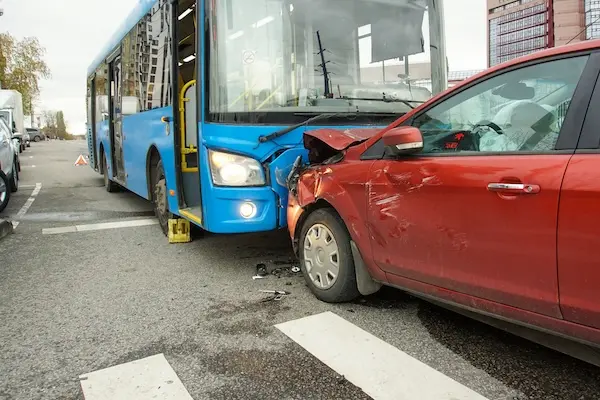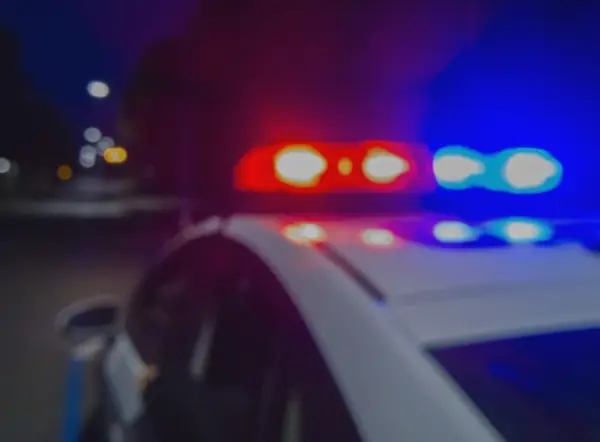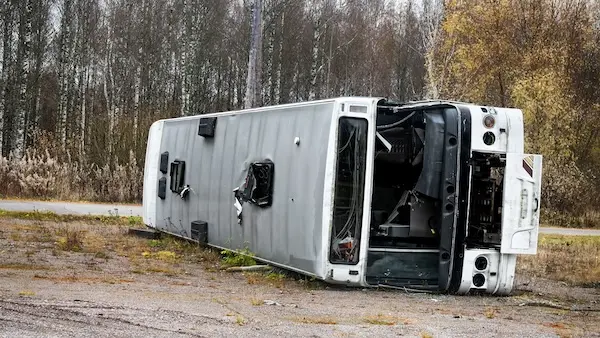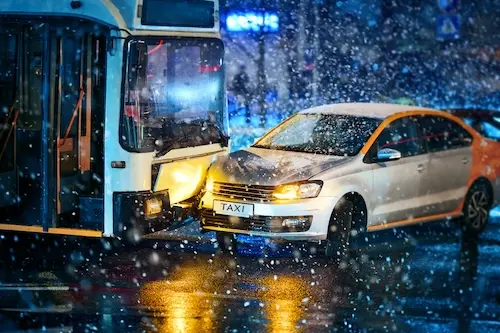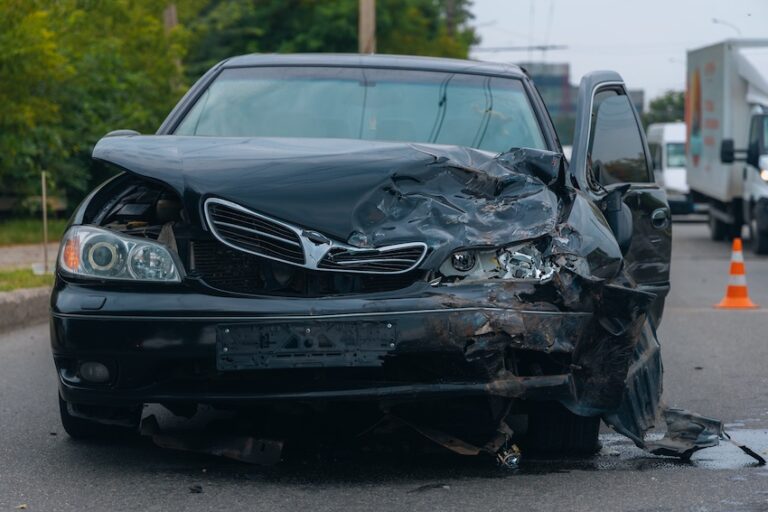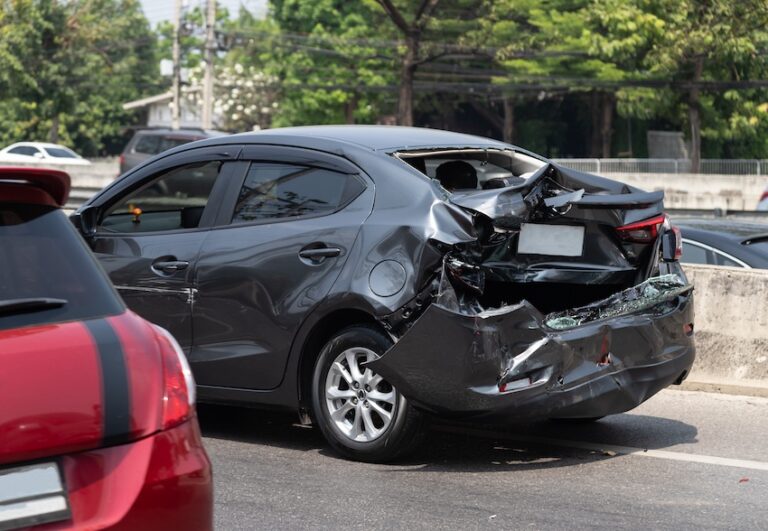Why Government Entities Matter in Bus Accident Cases
Bus accident cases involving government entities in Charlotte come with complex legal hurdles that can make it difficult for victims to recover compensation. At Panchenko Law Firm, our experienced Charlotte personal injury lawyer team often helps clients who are unsure who’s responsible when crashes involve city buses, school buses, or other publicly operated vehicles. Understanding how government involvement changes the legal process is essential to protecting your rights and pursuing fair compensation.
Definition of Government Entities in the Context of Bus Accident Cases
A government entity, in bus accident claims, refers to any public agency or authority that owns, operates, or manages a bus or other commercial vehicle used for public transportation. This includes city transit agencies like the Charlotte Area Transit System (CATS), local school districts operating school buses, and state or municipal transportation departments. These organizations are responsible for hiring bus drivers, maintaining large vehicles, and ensuring public safety.
Differences Between Public and Private Bus Operators
Bus accidents in Charlotte can involve both public and private operators. Public buses—like city buses or school buses—are run by government entities. Private buses, such as charter buses or those owned by commercial companies, are managed by non-governmental organizations. This distinction is important because the legal process and potential remedies differ. Generally speaking, claims against a government entity are subject to strict procedural requirements and limits on recoverable damages, while claims against private companies may follow standard personal injury case procedures.
Public vs. Private Bus Accidents
Bus accident claims vary depending on whether a public or private entity is involved. Here’s a quick comparison:
Key Differences Between Government and Private Bus Accident Claims
| Feature | Government Entity (e.g., City Bus, School Bus) | Private Company (e.g., Charter Bus) |
|---|---|---|
| Liability Rules | Subject to sovereign immunity | Standard personal injury law |
| Filing Deadline | Strict, often shorter | Standard statute of limitations |
| Where to File | North Carolina Industrial Commission | Civil court |
| Damage Caps | Yes – typically $1,000,000 per occurrence | No statutory cap (depends on insurance, court) |
| Notice Requirement | Required | Not required |
Why Government Involvement Changes the Legal Process and Remedies
When a government entity is involved in a bus accident, North Carolina law imposes additional hurdles for victims. These can include shorter deadlines to file a claim, special notice requirements, and limits on the amount of compensation available. For example, a bus accident claim against a city bus operator or school district must follow the rules set by the North Carolina Tort Claims Act. This law requires specific documentation, such as police reports and medical records, and often caps the damages an injured person can recover.
Government involvement also means that proving liability may be more complex. The law firm must gather substantial evidence—like witness statements, accident reconstruction expert reports, and maintenance records—to determine fault. In some cases, multiple parties may be involved, including the bus driver, other drivers, or even the bus manufacturer if mechanical issues contributed to the crash.
At Panchenko Law Firm, we know that bus accident cases involving government entities require careful attention and fast action. Understanding these distinctions helps victims and their families act quickly and protect their right to compensation for medical expenses, lost wages, and other damages. If you need support after a bus crash, reach out for a free legal consultation to discuss your options.
Types of Government-Operated Buses and Who May Be Liable
Understanding who owns and operates the bus involved in your accident is key to determining your legal options. Different government entities—such as city transit systems, school districts, or county agencies—are subject to specific liability rules under North Carolina law.
Below is a summary of common types of government-operated buses and who may be held liable:
| Type of Bus | Operated By | Potentially Liable Parties |
|---|---|---|
| City Bus (CATS) | Charlotte Area Transit System | City/government agency, driver, maintenance contractor |
| School Bus | Local school district or state | School district, bus driver, state agency, possibly manufacturer |
| Paratransit/Shuttle | County or municipal agency | Local agency, contracted service providers, maintenance teams |
If you’re unsure who was operating the bus, or if multiple entities were involved, a personal injury attorney can help clarify liability and guide your next steps.
Determining Fault and Liability
Bus accident cases involving government entities in Charlotte can be complicated because there are often multiple parties who might be responsible for the crash. At Panchenko Law Firm, we help clients sort through these legal issues and work to identify everyone who may be held liable for your injuries.
Potentially Liable Parties
In bus accident cases, several parties could be found liable. These might include the bus driver if their actions caused the accident, the bus company or government entity that owns or operates the bus, a maintenance provider if mechanical issues contributed to the crash, the bus manufacturer in the case of a defect, other drivers involved, or even pedestrians. Each party’s role in the accident must be examined closely to determine fault.
Vicarious Liability: When Government Entities Are Responsible
If a city bus driver or school bus driver causes an accident while working, the government entity that employs them—such as the Charlotte Area Transit System or a local school district—can often be held liable under the legal concept of vicarious liability. This means the government entity is responsible for the actions of its employees if those actions happen during the course of their job. This rule allows injured persons to seek compensation from the larger entity, not just the individual driver.
Multiple Parties and the Complexity of Accident Cases
Bus accident cases often involve multiple parties, which makes determining fault more complex than in a typical car accident. For example, a crash could involve a bus, several other vehicles, and even pedestrians. Sometimes, both the bus driver and another vehicle’s driver share responsibility. North Carolina law requires substantial evidence to prove who is at fault and by how much, especially since contributory negligence rules may prevent recovery if the injured person is found even slightly at fault.
Legal Barriers in Bus Accident Cases Against Government Entities
1. Sovereign Immunity: A Major Legal Shield
North Carolina law generally protects government entities from being sued.
- You can’t automatically sue a city, school district, or state agency after a bus crash.
- Legal action is only allowed under specific exceptions defined by state law.
2. The North Carolina Tort Claims Act: Limited Exception
This law creates a narrow path for injury victims to pursue claims.
- You may file a claim if a government employee (like a bus driver) was negligent while performing their job.
- Instead of going to civil court, your case must be filed with the North Carolina Industrial Commission.
3. Filing Requirements: Act Quickly and Thoroughly
Government claims have strict rules and short timelines.
- You usually have up to 3 years, but some cases require faster notice.
- You must include solid documentation: police reports, medical bills, and witness statements.
- Missing paperwork or deadlines can result in a denied claim.
4. Compensation Limits: Know the Cap
Even successful claims face payout restrictions.
- North Carolina limits compensation to $1,000,000 per incident, regardless of how many were hurt.
- Punitive damages are not available—only actual losses like medical costs, lost income, and pain and suffering.
Types of Compensation and Damages
Bus accident cases involving government entities in Charlotte can lead to serious injuries and significant financial strain. At Panchenko Law Firm, we help injured persons understand the types of compensation available after a bus crash, especially when a city bus, school bus, or other public transportation vehicle is involved.
What Compensation Can You Recover?
If you’re injured in a bus accident involving a government entity, you may be entitled to damages for:
- Medical expenses – hospital bills, surgery, rehab, and ongoing care
- Lost income – if your injuries keep you from working
- Pain and suffering – both physical and emotional distress
While punitive damages are rarely awarded in public entity cases, they may apply in extreme cases of recklessness.
Limits on Government Compensation
North Carolina law caps government liability at $1,000,000 per incident, even in severe injury cases. This applies to school buses, city transit, and other public vehicles—regardless of how many victims or the extent of the injuries.
Severe Injuries and Additional Claims
Serious injuries like traumatic brain injury or permanent disability may support a higher overall settlement—but statutory caps still apply. If other parties (e.g., another driver or bus manufacturer) share fault, you may pursue additional compensation from them.
Legal Process for Government Bus Accident Claims
Bus accidents involving government entities in Charlotte follow a strict legal process with unique rules. Here’s what you need to know:
1. Take Immediate Action
- Call 911 and get medical help—even for minor injuries.
- Document everything: take photos, get witness info, and request the police report.
- Contact a lawyer quickly to meet deadlines and protect your rights.
2. Know the Filing Requirements
- Claims against public entities must be filed with the North Carolina Industrial Commission.
- You typically have up to 3 years, but notice requirements may be shorter.
- Strong evidence—like medical records and police reports—is required.
- Miss a step, and your claim could be denied.
3. Understand Liability and Fault
- These cases often involve multiple parties: drivers, agencies, contractors, or manufacturers.
- Accident reconstruction experts may be needed to prove fault.
- North Carolina’s contributory negligence rule means if you’re even 1% at fault, you may be barred from recovery.
4. Expect Settlement Challenges
- You may face resistance from government lawyers and insurers.
- A lawyer can manage negotiations and push for full compensation within statutory caps.
5. Different Rules for Different Buses
- School bus claims often have added protections for school districts.
- City bus claims follow different procedures and deadlines.
- Both are subject to a $1 million per-incident cap under state law.
At Panchenko Law Firm, we help clients navigate these complexities, gather critical evidence, and file strong claims on time.
Frequently Asked Questions
At Panchenko Law Firm, we know that victims of bus accidents involving government entities in Charlotte have many questions. Below, we answer some of the most common questions about bus accident cases, liability, deadlines, and compensation under North Carolina law.
Who is liable if a bus driver causes an accident while driving a city bus?
If a bus driver causes an accident while operating a city bus, the government entity that owns and operates the bus—such as the Charlotte Area Transit System (CATS)—is often held liable. This is because the driver is acting as an employee of the city. However, other parties may also share responsibility, such as another driver, the bus manufacturer, or a maintenance provider if mechanical issues played a role.
Can I sue the city or school district after a bus crash?
Yes, you can file a bus accident claim against a city, school district, or other public entity if you are injured in a bus crash. However, special legal procedures apply. North Carolina law requires you to follow strict notice requirements and file your claim with the North Carolina Industrial Commission. There are also caps on the amount of damages you can recover from government entities.
What steps should I take if I am injured in a bus accident involving a government vehicle?
If you are hurt in a bus accident, seek medical attention right away and keep records of your medical bills and treatment. Report the crash to the police and ask for a copy of the police report. Collect witness statements and take photos if possible. Contact a personal injury lawyer for a free legal consultation to help you act quickly and preserve your rights.
What is the deadline for filing a bus accident claim against a public entity in Charlotte?
Generally speaking, you must file a claim against a government entity within three years of the date the accident happened. However, you must also provide written notice of your claim to the North Carolina Industrial Commission within this period. Missing these deadlines can prevent you from recovering compensation.
How does sovereign immunity affect my ability to recover damages?
Sovereign immunity protects government entities from many lawsuits, but North Carolina law allows accident victims to bring claims under the North Carolina Tort Claims Act. This law waives immunity in certain cases, but sets strict rules and limits on compensation.
What evidence is needed to support my claim (medical records, police report, witness statements)?
To build a strong bus accident case, you need substantial evidence. Key documents include medical records, police reports, witness statements, photos of the accident scene, and expert opinions from accident reconstruction experts. This evidence helps determine fault and prove the extent of your injuries and losses.
Can I recover damages for emotional distress or lost wages?
Yes, you may recover damages for emotional distress, lost wages, medical expenses, and pain and suffering. In rare cases, punitive damages may be available, but North Carolina law caps the total amount you can recover from a government entity.
What if the accident involved multiple parties or a pedestrian crash?
Bus accident cases often involve multiple parties, such as other drivers, pedestrians, or even the bus manufacturer. Each party’s share of fault will affect the outcome of your claim. In cases involving a pedestrian crash, both the bus driver and other vehicle operators may be found liable, depending on the facts.
How does North Carolina’s contributory negligence law impact my case?
North Carolina follows a strict contributory negligence rule. If you are found even 1% at fault for the accident, you may be barred from recovering any compensation. This makes it especially important to gather substantial evidence and work closely with a personal injury lawyer.
What are the differences between a bus accident and a car accident claim?
Bus accident cases involving government entities have unique legal challenges and procedural requirements. There are special deadlines, liability caps, and rules for suing public entities, unlike most car accident claims. A personal injury lawyer experienced with bus accident cases can help guide you through this complex process and improve your chances of a successful recovery.
Why Legal Representation is Essential
Bus accident cases that involve government entities create unique legal challenges. At Panchenko Law Firm, we have seen firsthand how these cases differ from standard car accident or personal injury claims. The rules are stricter, deadlines are shorter, and the process is more complicated—especially when city buses, school buses, or other government vehicles are involved.
Legal Challenges and Procedural Hurdles
North Carolina law gives government entities certain protections, such as sovereign immunity, which can limit your ability to sue. There are strict notice requirements and filing deadlines that must be met, or your claim could be dismissed. You may need to file your bus accident claim with the North Carolina Industrial Commission rather than a regular court. Gathering substantial evidence like police reports, medical records, and witness statements is critical, but the process is not always straightforward.
The Value of an Experienced Personal Injury Lawyer
Handling bus accident cases against a government entity is different from a typical accident involving private parties. An experienced personal injury lawyer understands the special rules for public transportation accidents, including those involving city buses, school buses, or other commercial vehicles operated by the government. At Panchenko Law Firm, we know how to determine fault, identify all liable parties, and deal with insurance companies or government representatives during settlement negotiations.
We also work with accident reconstruction experts and medical professionals to build a strong case. Our team ensures that all procedural requirements are met and that your claim includes all possible damages, such as medical expenses, lost wages, pain and suffering, and—when allowed—punitive damages.
Free Legal Consultation and Acting Quickly
Most law firms, including Panchenko Law Firm, offer a free legal consultation for bus accident victims. This meeting allows you to ask questions, learn about your rights, and understand the next steps. Because of strict procedural requirements and short deadlines, it is important to act quickly. Failing to meet these deadlines can mean losing your right to compensation.
Additional Factors That May Affect Your Bus Accident Claim
| Factor | How It Impacts Your Claim | Key Evidence Needed |
|---|---|---|
| Mechanical Failures & Maintenance Issues | Defective brakes, steering, or other mechanical problems may shift liability to the manufacturer or maintenance provider. | Maintenance records, inspection logs, expert analysis |
| Other Parties Involved | Passengers, pedestrians, or other drivers may contribute to the accident, complicating fault and liability. | Witness statements, police reports, accident reconstruction |
| Severe or Catastrophic Injuries | Life-altering injuries can increase potential settlement value—but are still subject to state-mandated caps. | Medical records, proof of lost wages, emotional distress documentation |
📌 Tip: Claims involving multiple parties or severe injuries require strong legal strategy and substantial evidence to overcome liability caps and shared fault issues.
Act Now to Protect Your Rights After a Government-Related Bus Accident
Bus accident cases involving city buses, school transportation, or other government-operated vehicles in Charlotte present serious legal challenges. With strict deadlines, procedural hurdles, and limitations under laws like the North Carolina Tort Claims Act, these cases are far more complex than standard accident claims.
If a government entity is involved, your ability to recover damages—such as medical expenses, lost income, and pain and suffering—can be limited. Sovereign immunity laws and North Carolina’s contributory negligence rule make it even more critical to gather strong evidence and follow the proper legal steps from the start.
Time is limited, and the stakes are high. At Panchenko Law Firm, we understand these complexities and fight to protect your rights. Our experienced attorneys know how to identify all liable parties, build strong cases with compelling evidence, and navigate the strict legal process unique to government-related accidents.
Don’t wait. Missing a deadline could mean losing your right to compensation entirely. Contact Panchenko Law Firm today for a free legal consultation. Call now (704) 900-7675 or fill out our online form—we’re ready to help you move forward.

